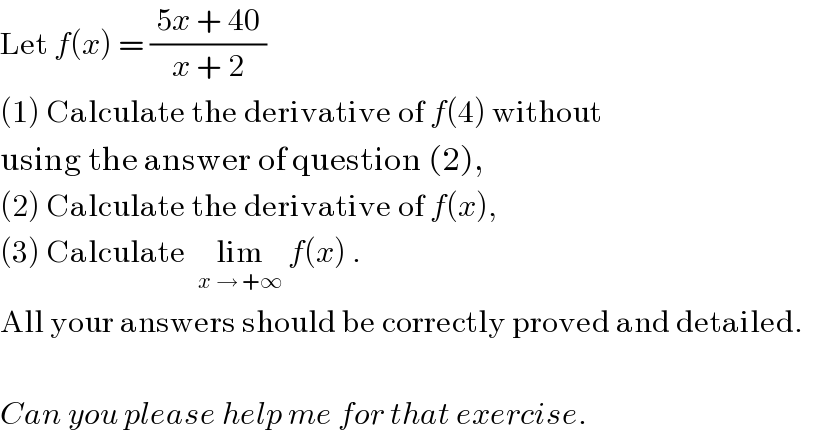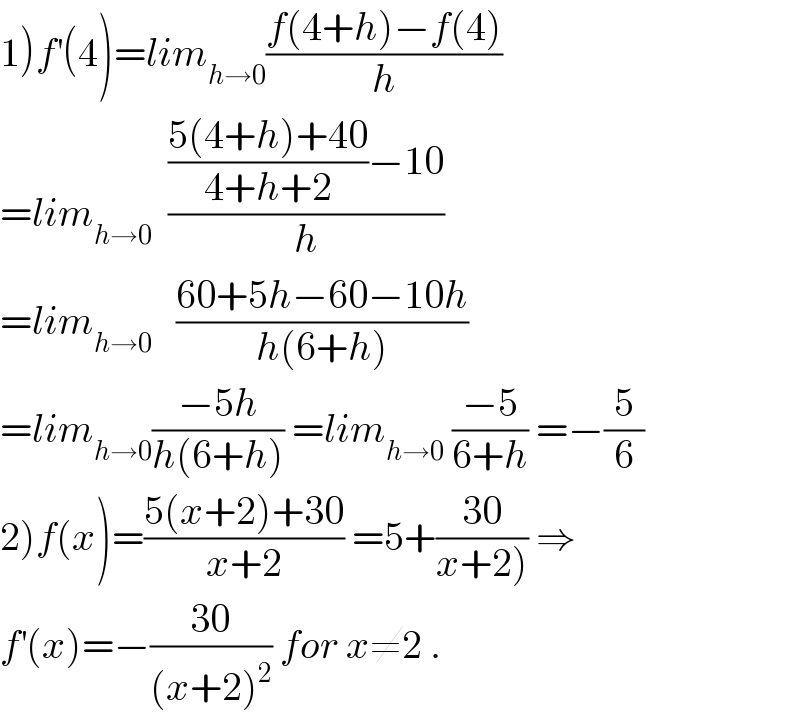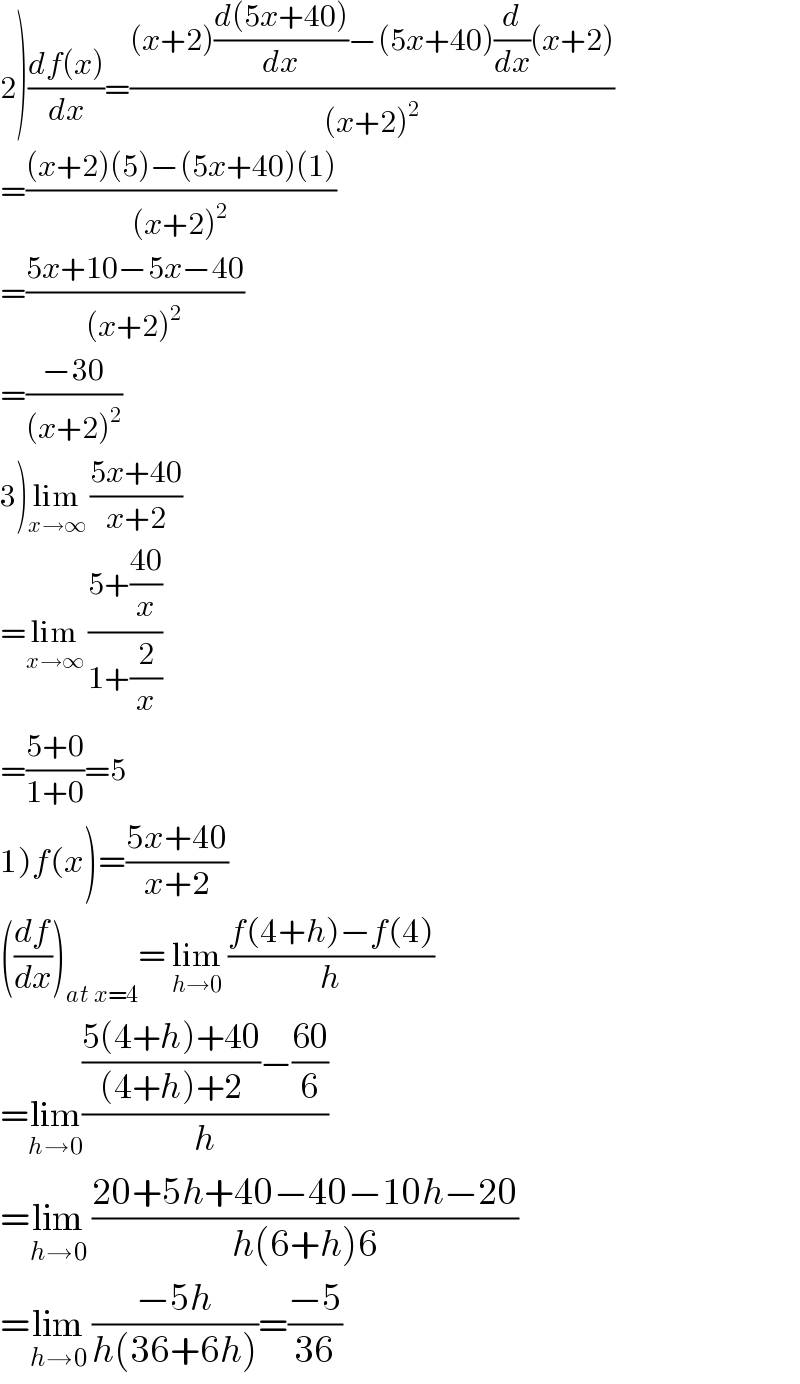Question Number 52542 by hassentimol last updated on 09/Jan/19

Commented by Abdo msup. last updated on 10/Jan/19

Commented by Abdo msup. last updated on 10/Jan/19

Commented by hassentimol last updated on 10/Jan/19

Answered by tanmay.chaudhury50@gmail.com last updated on 09/Jan/19

Commented by hassentimol last updated on 09/Jan/19

Commented by tanmay.chaudhury50@gmail.com last updated on 09/Jan/19

